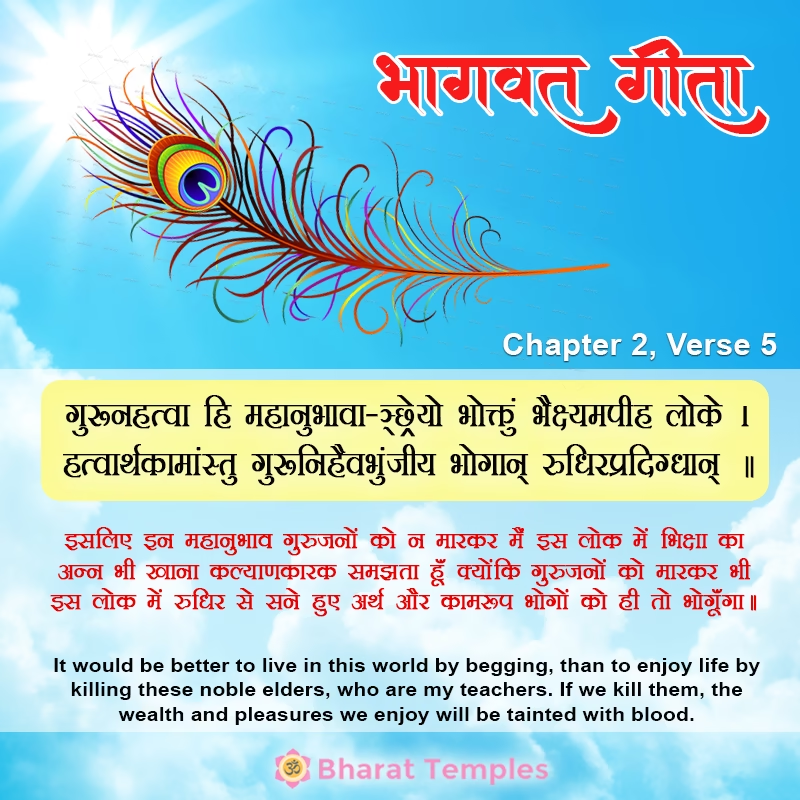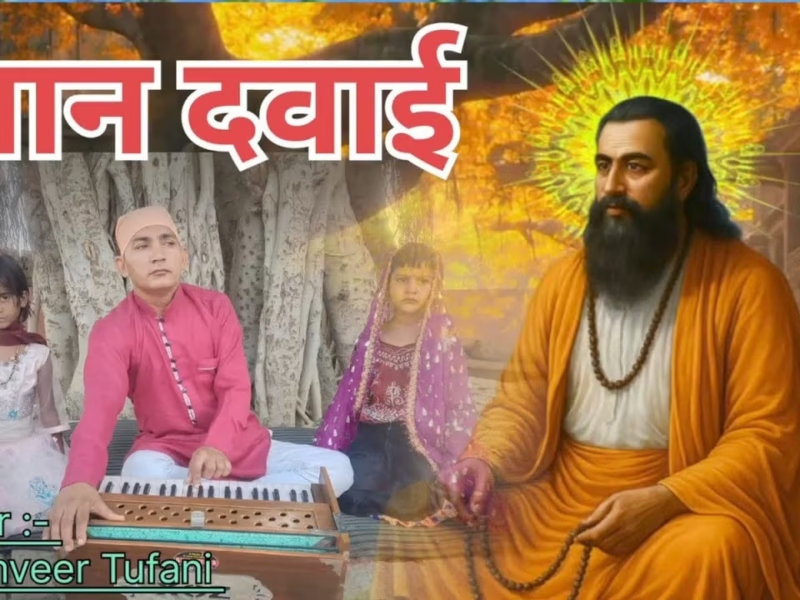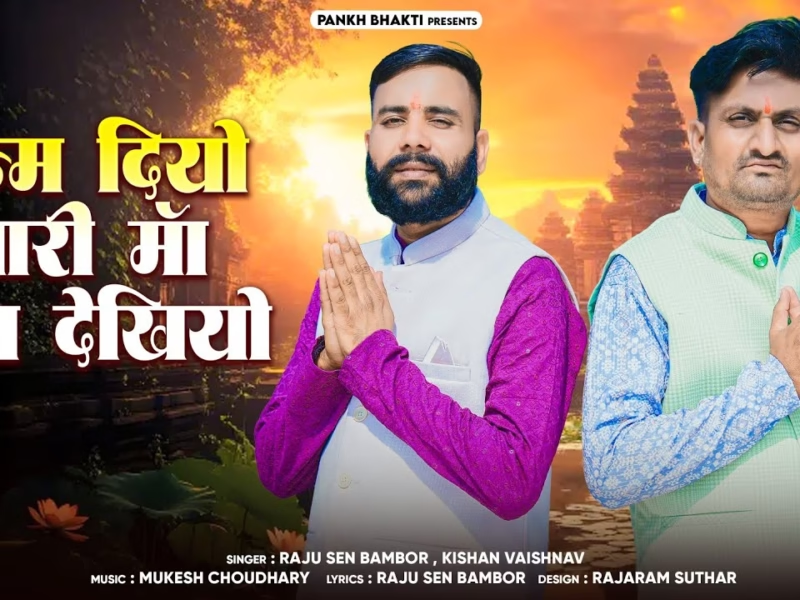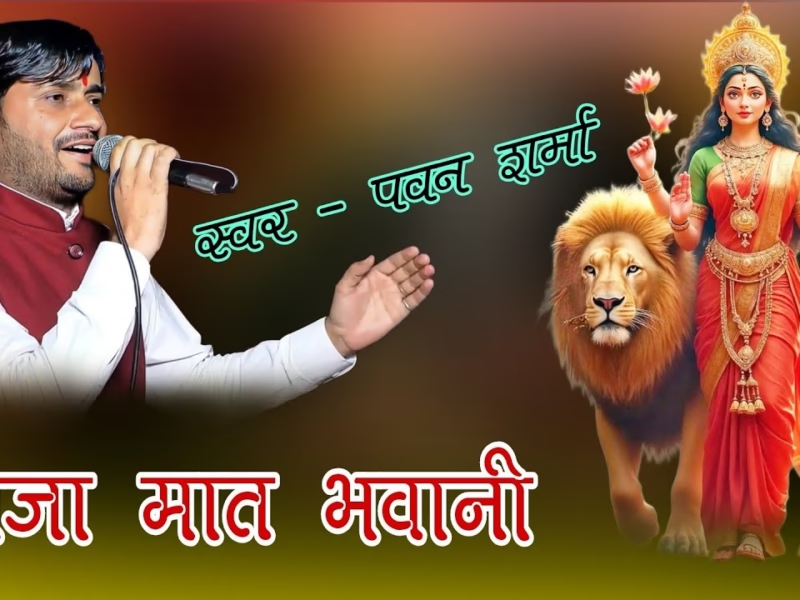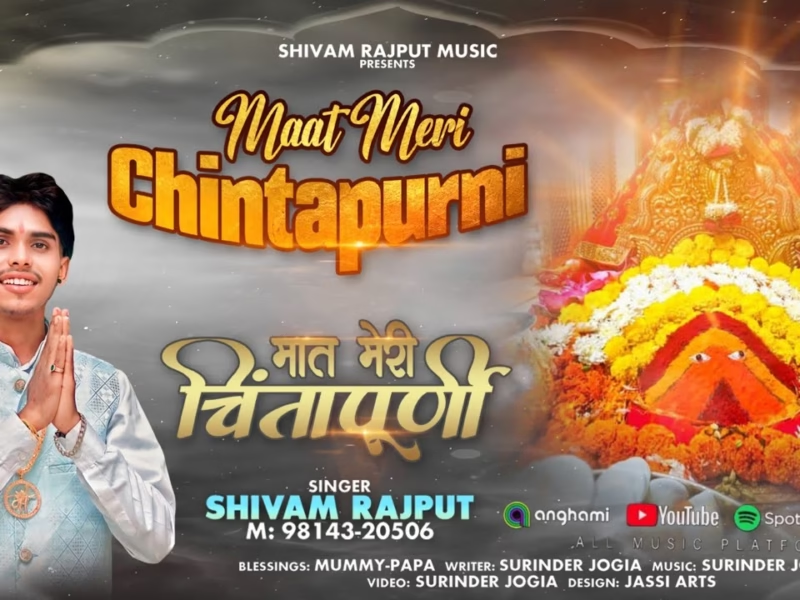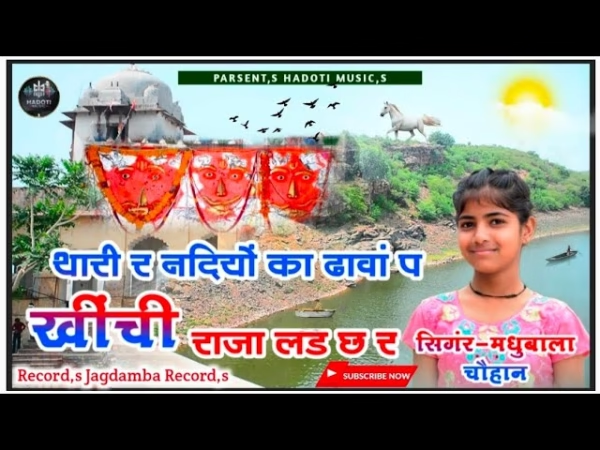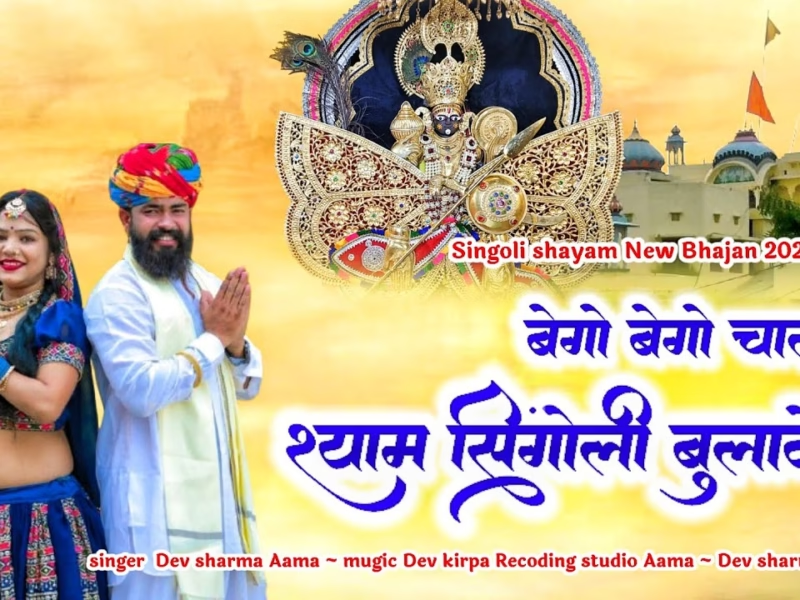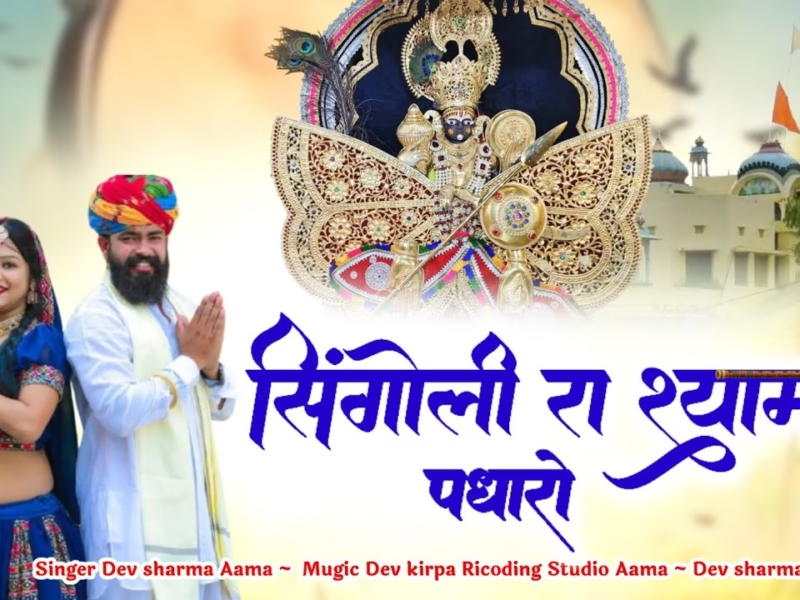Contents
Chapter 2, Verse 5
गुरूनहत्वा हि महानुभावान्
श्रेयो भोक्तुं भैक्ष्यमपीह लोके |
हत्वार्थकामांस्तु गुरूनिहैव
भुञ्जीय भोगान् रुधिरप्रदिग्धान् || 2.5 ||
gurūnahatvā hi mahānubhāvān
śhreyo bhoktuṁ bhaikṣhyamapīha loke
hatvārtha-kāmāṁstu gurūnihaiva
bhuñjīya bhogān rudhira-pradigdhān
भावार्थ:
इसलिए इन महानुभाव गुरुजनों को न मारकर मैं इस लोक में भिक्षा का अन्न भी खाना कल्याणकारक समझता हूँ क्योंकि गुरुजनों को मारकर भी इस लोक में रुधिर से सने हुए अर्थ और कामरूप भोगों को ही तो भोगूँगा॥5॥
Translation
It would be better to live in this world by begging than to enjoy life by killing these noble elders, who are my teachers. If we kill them, the wealth and pleasures we enjoy will be tainted with blood.
English Translation Of Sri Shankaracharya’s Sanskrit Commentary By Swami Gambirananda
2.5 गुरून् the Gurus (teachers)? अहत्वा instead of slaying? हि indeed? महानुभावान् most noble? श्रेयः better? भोक्तुम् to eat? भैक्ष्यम् alms? अपि even? इह here? लोके in the world? हत्वा having slain? अर्थकामान् desirous of wealth? तु indeed? गुरून् Gurus? इह here? एव also? भुञ्जीय enjoy? भोगान् enjoyments? रुधिरप्रदिग्धान् stained with blood.
Explanation in English:
Arjuna continues expressing his inner turmoil. He is morally torn between his duty as a warrior and his emotional ties to his gurus and elders.
Here’s what he says, broken down:
- “Gurūn ahatvā hi mahānubhāvān” – “Better not to kill these great souls, my teachers…”
Arjuna acknowledges Bhishma and Drona as great and noble personalities, regardless of which side they stand on in the war. - “Śreyo bhoktuṁ bhaikṣyam” – “It would be better to live by begging…”
Rather than living a life of luxury earned through violence, he says he would prefer a humble life—even as a beggar. - “Hatvā artha-kāmān” – “Even if they are motivated by desire and wealth…”
Arjuna admits that maybe his elders are fighting for selfish reasons, like power or wealth. - “Bhogān rudhira-pradigdhān” – “The pleasures enjoyed after killing them would be tainted with blood.”
Any material gain from this war would feel morally impure, because it would come at the cost of his loved ones’ blood.
Key Takeaway:
Arjuna’s thoughts show a deep ethical struggle: Is it right to win the world by doing something you feel is wrong in your heart?
This verse reflects the painful conflict between dharma (duty) and compassion, and sets the stage for Krishna’s teachings on selfless action, detachment, and the greater good.

